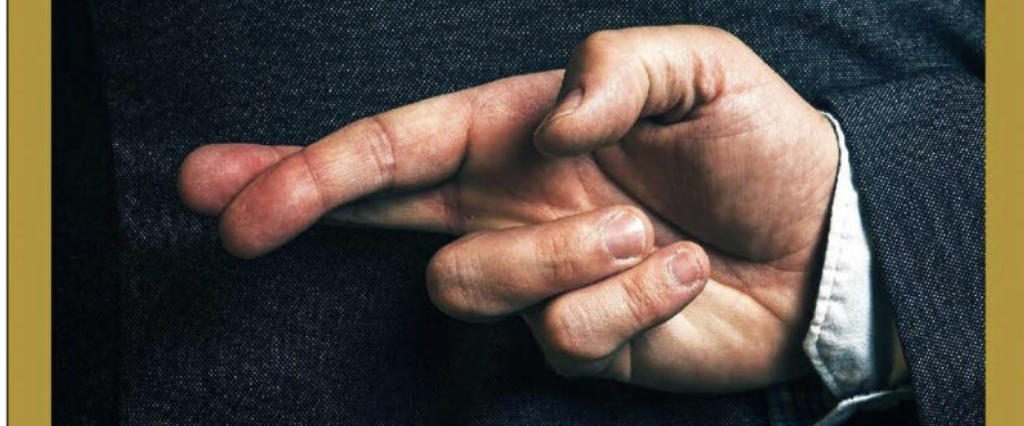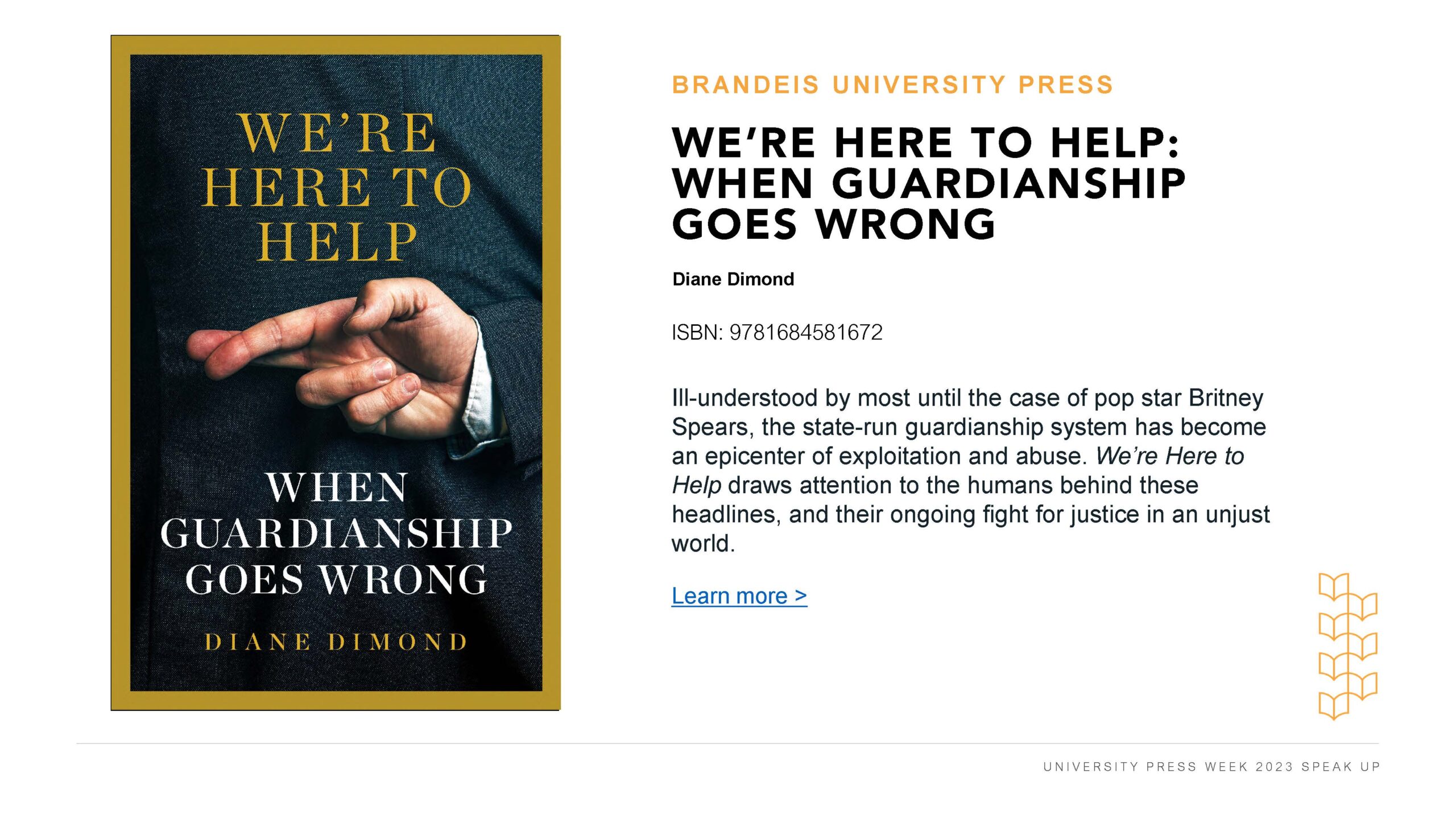Journalist Diane Dimond’s We’re Here to Help: When Guardianship Goes Wrong, published by Brandeis University Press this fall, is a first-of-its kind investigation into the ill-understood and unregulated state-run guardianships affecting 1.5 to 2 million Americans today. For University Press Week 2023, we asked Diane Dimond how she speaks up for victims of guardianship abuse, and how we can, too.
When did you first become interested in the subject of guardianship?
I first heard about a case of a suspected abusive guardianship in 2015 in the state of New Mexico. I was unable to confirm facts about the case because at that time the New Mexico courts held all proceedings in secret and gag orders were often put in place to keep participants from freely speaking about the proceedings. Shortly after that I learned about a similar case in Pennsylvania and I was able to obtain court documents, on the record interviews with family and their lawyer, and I finally began to write about the issue in my syndicated column. I quickly realized I’d stumbled upon a nationwide problem when emails started pouring in from anxious family members across the country.
As you began to investigate, what did you discover? What does predatory guardianship look like?
I discovered that once a guardianship is established the “incapacitated ward of the court” immediately loses all their civil rights. In most states they can’t hire a lawyer to defend them, they cannot freely travel, vote, drive a car, marry, decide which doctors they will see or even where they will live. At the same time all their money, property and investments are put into the name of whoever the court appoints as their guardian (or conservator as some states call it) The ward cannot spend their own money, have a credit card or write a check. All their life decisions are henceforth made by a court appointee. If that person is a trusted family member then the situation works out well, but my investigation revealed that too often judges appoint stranger-guardians, for profit professionals, who may have dozens or even hundreds of other wards to take care of. It is an ill-regulated and often unsupervised system and it is estimated that billions of dollars is illegally siphoned from ward’s estates every year.
High profile cases like that of Britney Spears have drawn attention to guardianship abuse of celebrities and public figures. Turning our attention to the general public, who is most affected by guardianship abuse and why?
It used to be it was just the elderly who were conscripted into guardianship, especially those with some money, no family and memory issues. But over the years I discovered the victim pool has been expanded by bad actors in the system. Victims now include: those who have won a sizeable workman’s comp or medical malpractice award; young people who either earn or inherit substantial sums of money; someone who has a stroke or car accident and is temporarily indisposed or in a coma can be guardianized, and even after they fully recover its nearly impossible for them to get the guardianship (or conservatorship) terminated. I also discovered some cunning divorce attorneys are suggesting to their male clients to guardianize uncooperative wives who drag their feet on a divorce. Once she is declared “incapacitated” she likely won’t be allowed to hire a lawyer to fight for her. The common denominator in all these cases is money.
In your book, you speak with families across the country who have been impacted by guardianship abuse. Is there a particular story that has stuck with you that you would like to share?
There are too many in the book for me to pick just one! But I will say that many, many times a guardianship comes about as a result of bickering within a family about what to do with their at-risk loved one. If family members could just find a way to agree, maybe go to mediation or family counseling first before going to a lawyer, I think we’d see significantly fewer guardianships/conservatorships. Perhaps the most egregious cases I found were those where uncompassionate guardians would isolate the ward from their loved ones (yes, they are all powerful and can ban visitations) and then overmedicate the ward to insure they were compliant. Then there were the cases where an elderly adult and their grown child would go to a lawyer for advice and then that lawyer would take it upon themselves to secretly file for guardianship. You can’t imagine all the ways this “protective system” has morphed into a predatory one.
How can we, as readers and community members, speak up for individuals experiencing guardianship abuse?
Judges and their court appointees mostly operate in a vacuum, immune to outside suggestions or criticism. If someone is actually allowed to sit in on a guardianship related hearing they might want to write a note to the court suggesting the judge consider “a less restrictive solution” to the potential ward’s situation. Some states have statutes that suggest a judge “may” consider a less restrictive solution (like supported decision making) but seldom does a judge do that. Most importantly, I believe, citizens need to educate themselves about how guardianship/conservatorship can become financially and emotionally devastating and even hasten the death of the targeted person. My book is a good start, if I may modestly say. And my website has a resource section called Guardianship Central which offers other books, articles, a FAQ, a glossary of mysterious courtroom terms, and some of my long form writings on the topic.




